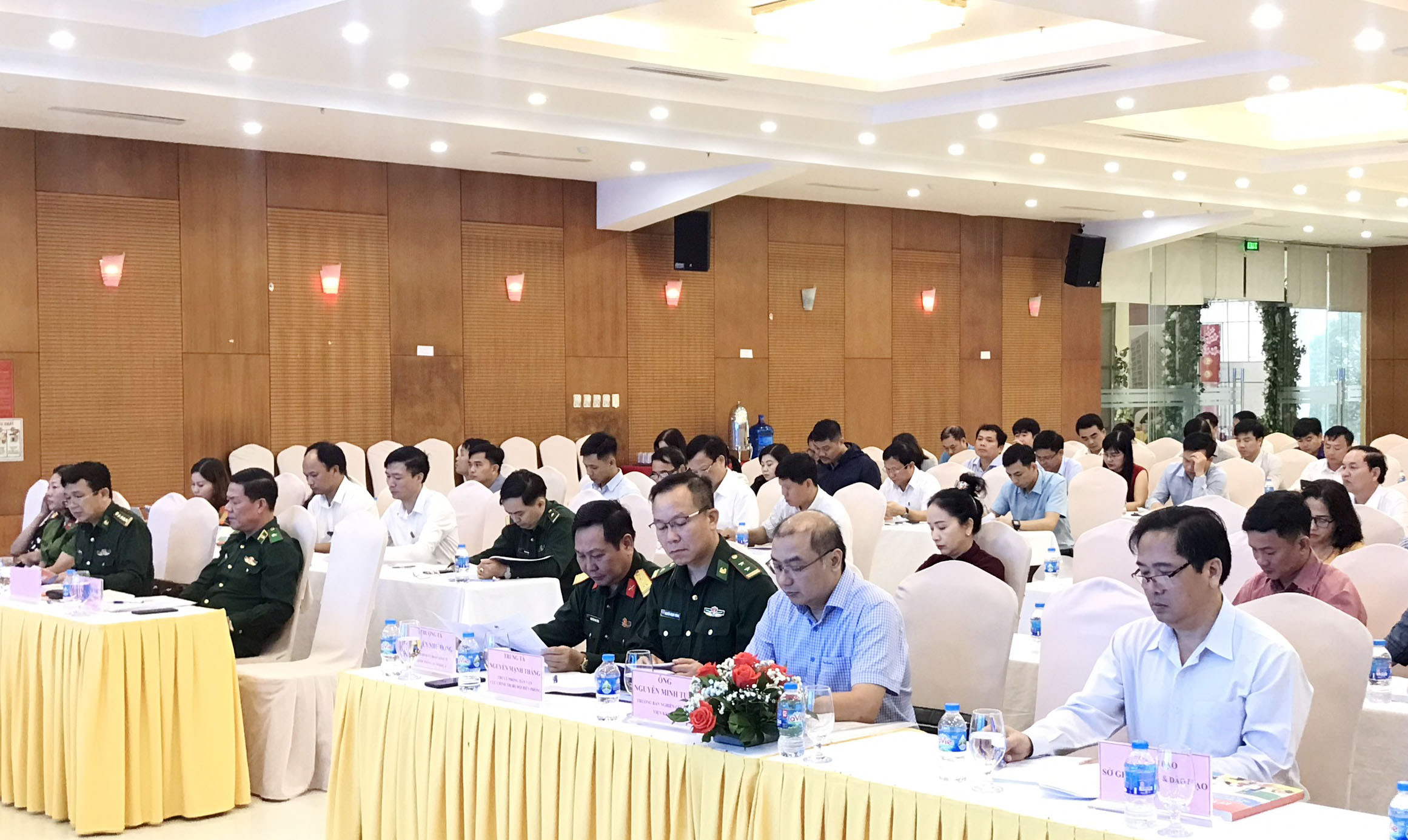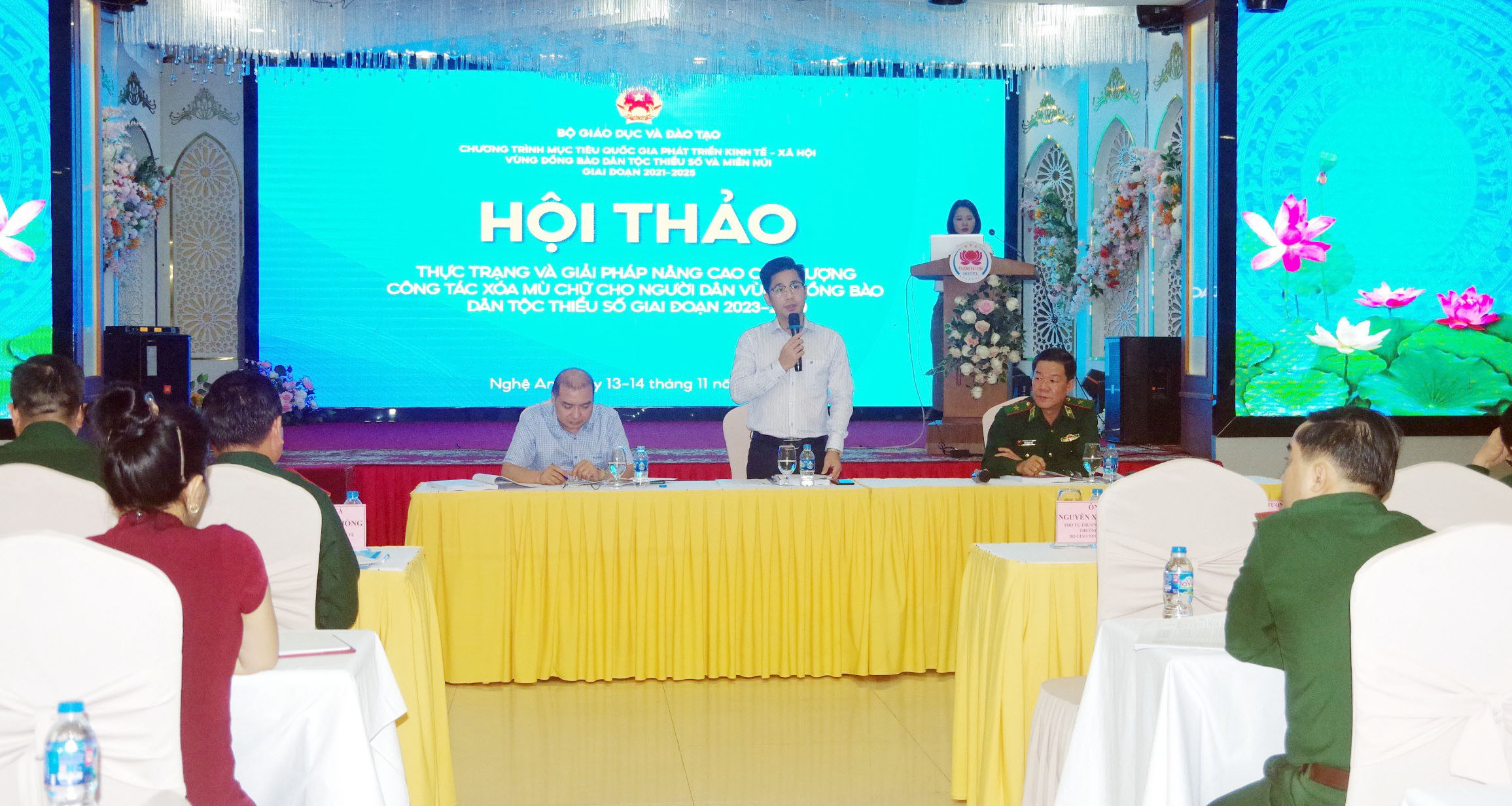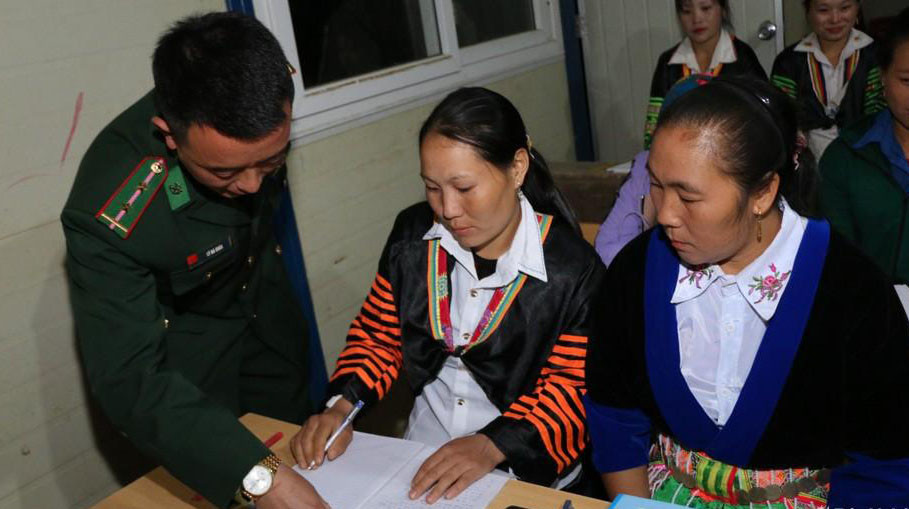Improving literacy for ethnic minority people
(Baonghean.vn) - On November 13, in Nghe An, the Ministry of Education and Training organized a workshop on the current situation and solutions to improve the quality of illiteracy eradication work for ethnic minority people in the 2023-2030 period in the Central provinces.
Attending the workshop were representatives of the Ministry of Education and Training; the Border Guard Political Department; the Police Department for Management of Detention Camps, Compulsory Education Facilities, and Reformatory Schools under the Ministry of Public Security; the Ethnic and Religious Affairs Department, the Central Committee of the Vietnam Women's Union; the Continuing Education Research Department, the Vietnam Institute of Educational Sciences, and local departments.
On the side of the provinces/cities in the Central region, there are representatives of the Department of Education and Training; Departments of Education and Training in mountainous areas, where ethnic minorities live; representatives of the Center for Vocational Education - Continuing Education; representatives of leaders of educational institutions assigned to organize literacy training.

Mobilizing tens of thousands of people to learn to read and write
In his opening report and introduction to the workshop, Mr. Nguyen Xuan Thuy - Deputy Director of the Department of Continuing Education, Ministry of Education and Training said that in recent years, implementing the work of eliminating illiteracy, localities have had solutions to improve the quality and effectiveness of illiteracy eradication work for people in general and people in ethnic minority areas in particular.
During the 2020-2023 period, the country mobilized more than 79,000 people to learn to read and write. Particularly, the provinces under the national target program mobilized nearly 54,000 people to learn to read and write. Of these, more than 33,000 people attended level 1 classes with 86.2% of the students being ethnic minorities; more than 21,600 people attended level 2 classes with 74.9% of the students being ethnic minorities.
In addition, localities also mobilized and coordinated many social forces to participate in the work of eliminating illiteracy, such as signing a coordination program with the Provincial Police, the Department of Labor - Invalids and Social Affairs to organize classes to eliminate illiteracy, popularize education, and provide vocational guidance for prisoners in prisons. At the same time, signed a coordination program with the Border Guard Command to promote the work of eliminating illiteracy, consolidate the results of universalizing primary education. In addition, coordinated with the Association for Promotion of Education in the work of promoting learning and talent, building a learning society...

As of September 2023, the whole country has 226/10,598 commune-level units (2.5%) meeting level 1 literacy standards; 10,332/10,598 commune-level units reaching 97.5% meeting level 2 literacy standards.
There are 42/704 district-level units (6%) that meet the level 1 literacy standards; 662/704 district-level units (94%) that meet the level 2 literacy standards. Nationwide, 63/63 provinces and cities meet the level 1 literacy standards (100%) and currently 48/63 provinces meet the conditions and standards to meet the level 2 literacy standards (accounting for 76.2%), of which 22 provinces have been inspected and recognized by the Ministry of Education and Training as meeting the level 2 literacy standards.
Discuss solutions to overcome existing problems
However, besides the achieved results, the workliteracyThere are still some shortcomings and limitations such as people's awareness is not enough. The effectiveness of illiteracy eradication work is not high, the results are not sustainable, the phenomenon of re-illiteracy continues and increases. The number of people attending illiteracy eradication classes is still very small compared to the number of illiterate people. The school system and facilities for teaching and learning in some mountainous communes are still difficult and lacking.
The mountainous districts have large areas, difficult transportation, and scattered ethnic minorities along the borders of Cambodia, Laos, and China. Their housing is unstable, so it is difficult to investigate the number of illiterate people to open classes, mobilize them to attend classes, and manage classes. Coordination with agencies, organizations, and unions in the work of eliminating illiteracy is not close and regular...
At the workshop, delegates from localities focused on expressing their opinions on existing problems, challenges, and obstacles to literacy among ethnic minority people. On that basis, they discussed solutions to improve the quality of literacy work in accordance with the economic and social conditions of each province. The workshop also received 60 presentations from provinces in the Central Highlands region on assessing the current status of literacy work in localities in the past time. At the same time, key solutions were proposed to improve the effectiveness of literacy work in the 2023-2030 period.

In the afternoon of the same day, the workshop focused on group discussions on solutions to improve the quality of illiteracy eradication. In particular, the groups proposed many solutions such as enhancing the responsibility of Party committees and authorities in propaganda, raising public awareness of illiteracy eradication work. Innovating the management, investigation, mobilization and organization of illiteracy eradication classes. Consolidating literacy results, limiting the re-illiteracy situation. Improving the quality of teaching and learning; supplementing policies for learners, teachers, and participants in illiteracy eradication work. Promoting the socialization of illiteracy eradication work to mobilize more forces to participate such as social organizations, volunteer students... Taking advantage of support from domestic and foreign programs and projects.
In Nghe An, in recent years, organizing and maintaining literacy classes has been the main task assigned to primary schools in the area, with the coordination and participation of local organizations, unions, and social forces.
Teachers participating in literacy classes are selected from those who are dedicated and love their profession. Priority is given to teachers who are local, know the local language, and understand local customs and practices.
In 2022, Nghe An was recognized as having achieved level 2 literacy standards. Recognized as having achieved universal preschool education standards for 5-year-old children. Recognized as having achieved level 3 universal education standards and level 1 universal secondary education standards.


